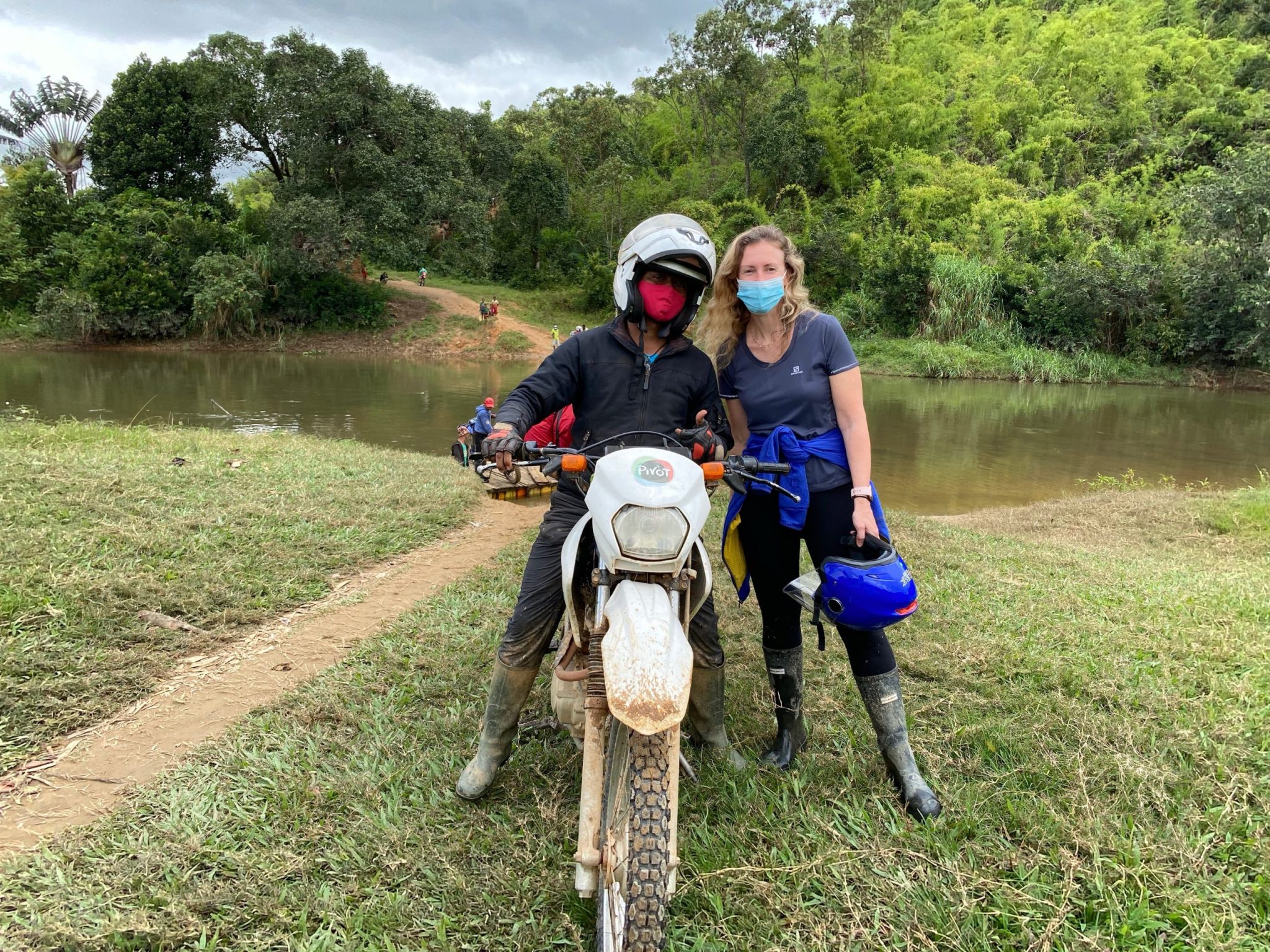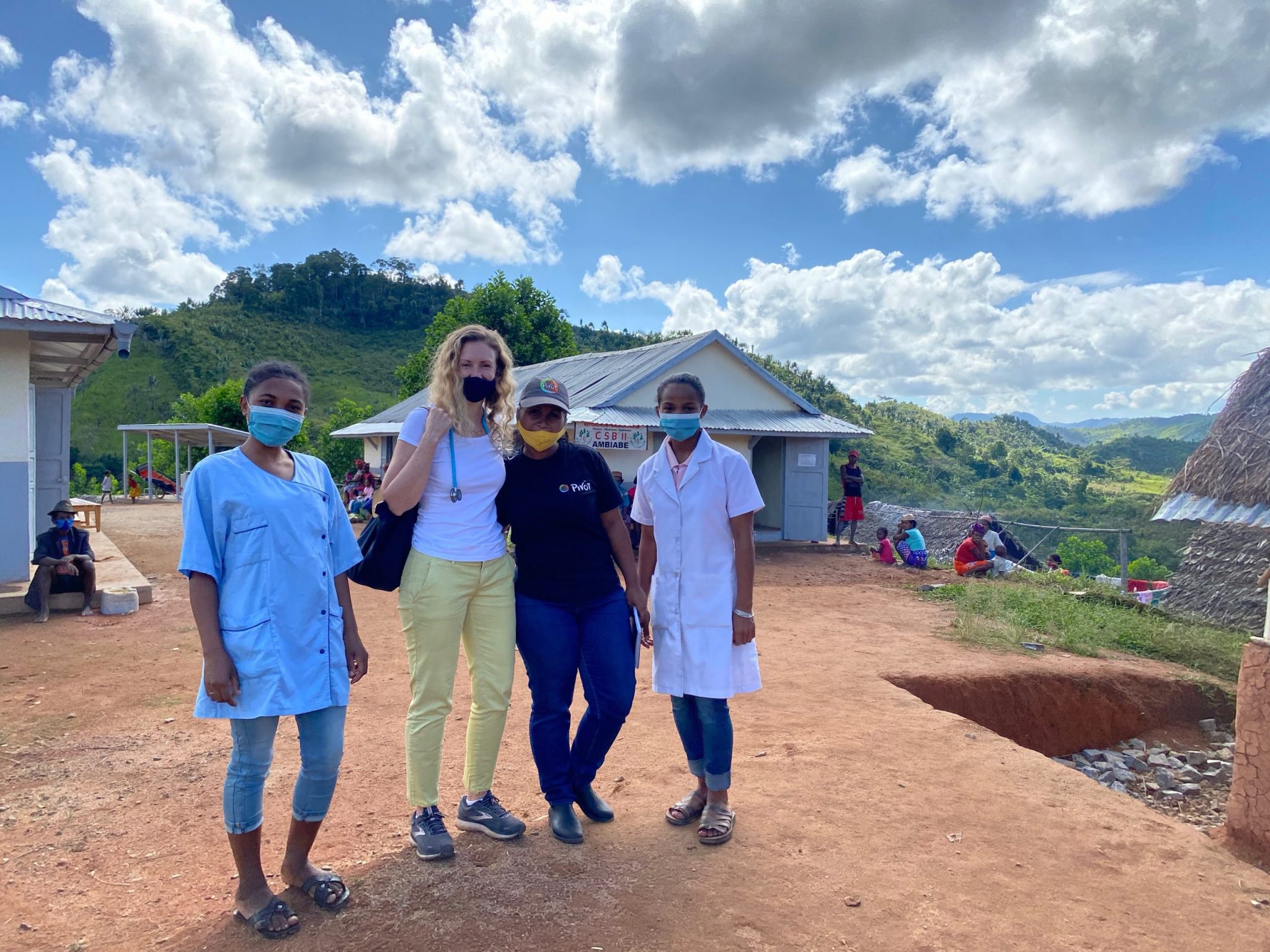07 May Field Note: Finding Resilience During COVID’s Second Wave
I’ve been wearing a mask now for the last 36 hours straight, and I feel like I’m slowly suffocating. It’s irrational, I know, but I have an increasing urge to rip off my mask as the hours slowly pass. The sensation brings to mind a particular patient I cared for recently. He was a man in his late fifties with severe COVID-19 who had desperately low oxygen saturation levels. He was actually suffocating. It feels uncomfortable writing that, and I’m guessing even more uncomfortable to read, but this is not a time to avoid facing hard truths.
I’m on the plane on my way back from six weeks in Madagascar. Somehow, each time I’ve traveled to Madagascar in the last year, it happens to coincide with a spike in COVID cases, which adds an extra layer of complexity to such trips. In many ways, this trip was like any other that I’ve taken many times in years before. I visited healthcare facilities (some vastly improved and some still in desperate states of disrepair), I saw patients with our team (some easy to diagnose and treat, and others diagnostic puzzles that left me scratching my head and wishing we had more diagnostic capacity), and I had meetings – lots and lots of meetings.
But this trip impacted me more profoundly than other trips had for a long time. Having spent many years living in rural sub-Saharan Africa and working there intermittently, there’s not a lot that surprises me about this work anymore, but during these six weeks I felt like I got a more real sense of what it’s like to live and work in Madagascar than I had gotten previously – even if that just came in short glimpses.

I feel both invigorated by the progress we’ve made (and continue to make) in Ifanadiana District and concerned about the deep fatigue I sensed in many of my teammates. Working in healthcare can be incredibly rewarding. There are few jobs where you can say you’ve actually saved someone’s life as a part of your daily routine. And yet, when challenges mount, it can be physically, emotionally, and psychologically draining in ways that differ from many other jobs. This is especially true when working in a place where just keeping the lights on, having working sinks to wash your hands, and the necessary medications and equipment to save lives can be a constant struggle. Usually, we write about the victories we’ve had – the improved data systems, the new staff hired, the new programs initiated, etc. – but today I want to focus more on some of the challenges, because I want to recognize and fully honor just how challenging the work our dedicated team does day after day really is.
Seeing the challenges our staff and the people we serve face has led me to think more about the role I play in all of this. Sometimes people ask me why I went through the trouble of going to medical school, and doing a double residency, only to be stuck in meetings most of the day. Like most things, the full answer is complicated. But the simple answer is that being able to combine direct patient care and public health allows me to tackle challenges from both ends, and to feel like progress is being made in one area if not in the other. When an individual patient’s diagnosis is not clear or there’s no available treatment, it’s easy to lose hope, but instead, I can switch to developing new programs or working to change policies that will help many more patients. Conversely, when the team and I are struggling to implement a certain clinical program, we can always go back to treating individual patients, and see the direct impact of our work. This gives me professional flexibility – and a psychological break from some of the struggles associated with this work – that many others don’t have.
That brings me back to the patient I mentioned earlier. I won’t use his real name to protect his privacy – let’s call him Rakoto, because I recently heard some colleagues joking that “Rakoto” is such a common name that it’s the Malagasy equivalent of “John.”
Rakoto spent almost a month in the district hospital that PIVOT supports, and most of that month was truly a struggle for his life. One particular Sunday, when I stopped by to check on him, Rakoto’s oxygen saturation read 39% on nine liters of oxygen. For a moment, I stared at the reading in disbelief. Then I switched the monitor to his other fingers, and got similarly low readings. When I moved the monitor to my own finger, wondering if the machine was faulty, I got a reassuring 98% saturation (normal is 95-100%). At this point in the United States, he would have been transferred to the intensive care unit (ICU). However, we don’t have that option in rural Madagascar. The only ICU capacity is in the capital, 11 hours away, and that capacity was very limited.
So, we did the best we could for Rakoto, given the resources available to us: we put him on the highest level of oxygen we could without mechanical ventilation; started IV steroids; changed his positioning to maximize oxygen delivery to his lungs; and provided supportive care to make sure he was as comfortable as possible. Honestly, I didn’t think that was going to be enough. Each morning when I woke up, I wondered if he was still alive, and I stopped in to check on him when I could.
The day before I left Madagascar, I visited the hospital’s COVID ward, and there was another patient in Rakoto’s bed, and my heart sank. I looked carefully at the patients in each of the other beds in the room, and went through the other rooms in the infectious disease ward, but there was no sign of him. I left not knowing if he had finally gotten off oxygen and had been discharged to home, or if he had succumbed to COVID-19 and passed away.
When I landed in the US, I checked with the team and found out Rakoto had in fact been discharged a few days before I departed. I breathed a sigh of relief. Rakoto’s discharge is a testament to human resiliency and the difference that basic hospital care can make in saving people’s lives. It felt good to know about this one small victory, and yet, I still feel unsettled, because the road ahead during the pandemic is so unclear.
When teaching a social medicine course this past January, we used India as an example of how to successfully manage a public health response to COVID-19. And now, just a few months later, the news is covered with images of burning funeral pyres as COVID-19 ravages the country. It’s hard to say what lies in store for Madagascar and our team, and I know many of them are already exhausted. I find comfort in the fact that we truly are a team, and I think we all find inspiration and support from each other.
I desperately hope that PIVOT team members will be able to get the respite they need from this struggle and then be able to forge ahead with all of the great plans we have developed for strengthening the public health infrastructure and ensuring that everyone has access to care. And that we will be able to move forward with implementing our model for achieving universal health coverage with the Government of Madagascar and have an impact that reaches beyond each of our individual victories. Most of all, I hope each member of our team will remain as safe and healthy as possible throughout the pandemic, and has the resiliency to continue pursuing their goals and dreams – both professional and personal – for many years to come.

Alishya and PIVOT Primary Care Supervisor Lalaina join Ministry of Public Health staff outside of their newly-reconstructed health center during a visit to Ambiabe, one of Ifanadiana District’s rural communes.
